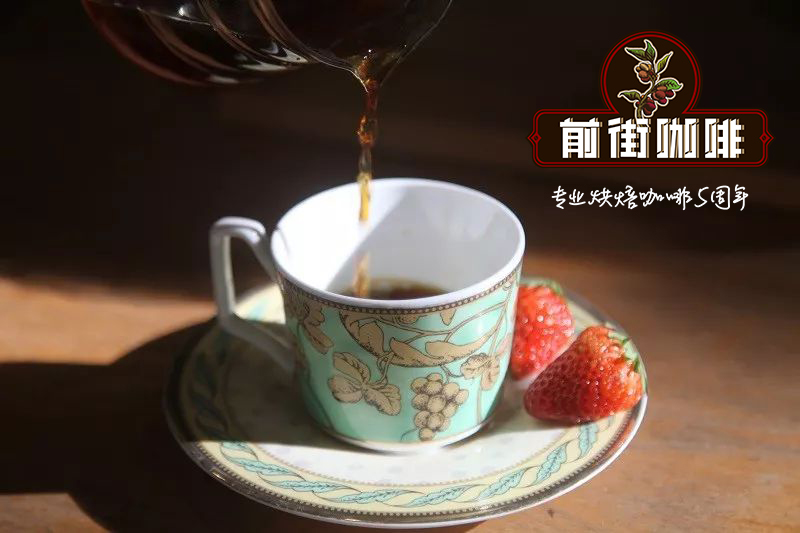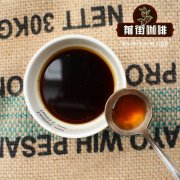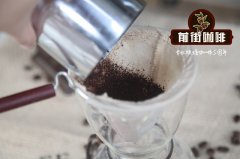El Los Alpes Farm Coffee Bean Cup Test Flavor_El Salvador Coffee for What People Drink

Professional coffee knowledge exchange more coffee bean information please follow the coffee workshop (Wechat official account cafe_style)
Aida Batlle can be said to be the forerunner of El Salvador's boutique coffee and a legend in the boutique coffee industry.
She speaks standard English, and between 1980 and 1992, in order to avoid the Salvadoran civil war, she lived with her family in Miami, where she grew up, didn't finish college, and then moved to Nashville with her husband to run restaurants and takeout. After the failure of her marriage, she was 28 years old and felt there was no reason to stay in the United States. She returned to El Salvador in November 2002 and took over her family's farm. The following year (2003), the Cup of Excellence was held for the first time in El Salvador. She took the beans and won the first prize. The Solberg & Hansen Cafe in Oslo, Norway, bid her batch for $14.06 a pound, when Salvadoran coffee was less than a dollar a pound!
Aida
She was a novice and knew very little about coffee. She happened to encounter a wave of boutique coffee sweeping the world. Only after she won the Outstanding Cup Award did she realize her coffee potential and began to seriously study cup testing and farm practice. Her family Batlle owns several estates, of which the Finca Kilimanjaro estate, which won the first prize of the extraordinary Cup, is grown organically on the steep slopes of Mount Santa Ana. In addition to Kilimanjaro, her estate includes Finca Los Alpes, Finca Mauritania, and Finca Tanzania. Los Alpes won the 16th in the 2003 extraordinary Cup.
The fate of coffee in El Salvador can be said to be played by fate. El Salvador has been famous for its bourbon native species since the 19th century. In the 1980s, coffee agriculture was abandoned and dilapidated due to the height of the civil war, while other countries were fighting coffee infectious diseases by introducing disease-resistant and high-yielding beans on a large scale, such as Catimors or varieties of Katimo, but the flavor of these new beans was not as good as that of traditional beans. As a result of the civil war, El Salvador missed the innovation of beans, but retained a lot of ancient bourbon, and 50-or 80-year-old coffee trees can even be found on many farms. Because of the lack of care for many years, many of these coffee trees are not only susceptible to germs, but also lack nutrition and mediocre flavor, but if they continue to be taken care of, these bourbon have a very rich and elegant flavor and great potential.
Aida's great-great-grandfather, the man who introduced bourbon to El Salvador, her Batre family has grown coffee in western El Salvador for five generations, but in the past, cherries were harvested on farms and sent to large processing plants, where they were mixed with cherries from other different farms and marked as Salvadoran coffee, regardless of specific producing areas or batches. To her father's generation, she still runs the coffee farm in this way. Aida has no baggage, with completely different ideas from the tradition, insisted on separate batches, and brought the treatment methods of other countries to El Salvador, carrying out many experimental projects, including the Kenyan treatment method Kenya process, the Ethiopian treatment method Ethiopia process, and even developed the "Sumalvador" treatment method. Coffee from El Salvador is treated with the traditional Sumatran wet stripping method (Giling Basah wet hulled). But she is not a theorist sitting in the lab. Aida is famous for doing it herself, and she will be seen squatting down with harvester workers to sift through cherries during harvest, leaving only ripe fruit. She personally sat in the washing plant, managing each treatment step, cup testing each batch, and understanding the subtle differences in flavor.
Blind assessment:
Crisp sweet and cocoa tones with deepening and complex salty hints. Rich, balanced acidity; light syrup, almost bubbly on the palate. The sweet / salty feeling extends to a long end.
Notes:
Farmer Luis Alonso Araujo produces this coffee from trees that are admired, boldly throwing things with Pacamara varieties as part of his farm in the Los Angeles Alps. Pacamara, a cross between Marrago Rippi and Jia, a chosen heirloom bourbon variety, has proven excellent coffee production on many Salvadoran farms.
First of all, thank you for giving us this cup of Salvadoran coffee to share their story.
Before we go to taste the coffee, let me share this story. This is a good one.
Terra bean coffee does not grow coffee, processed coffee, roasted coffee, and even a store, you can buy a lot of different coffee.
What they do is build relationships between bakers and individual coffee farmers. Then, every month, they have a cup of coffee, which can be obtained through these relationships.
This month's coffee is La Colmena, grown on El Salvador's Los Angeles Alpine Farm, and baked Johnson Brothers Coffee roasted in Madison, Wireless. And features on the Terra Bean Coffee website only this month (December 2012).
They will have different kinds of coffee next month. Every cup of coffee this month comes from small farms in some coffee-producing areas of the world.
Enjoying coffee at a cafe in El Salvador
If you like the idea of providing direct support to small coffee growers and try a new cup of coffee every month, you can subscribe to the Terra Bean Coffee website. Every month you will receive a new bag of coffee, along with a list of information about its origin and history (as can be seen in the photo above).
Okay. That's the story. Now try the coffee itself.
This is a medium-roasted coffee with a smooth and sweet taste. Sweetness is not candy-sweet, it is a drier sweetness, like a dark, unsweetened chocolate with a hint of dried fruit.
It also had a little bit of bite, a bitter touch with Tingles' mouth.
We like how all the flavor elements of this coffee are mixed together, giving you a smooth and harmonious taste experience, with no aspect drowning others.
It's not that kind of coffee when you need a heavy brew to drink the first thing in the morning. This is the taste, appreciation and enjoyment of coffee.
END
Important Notice :
前街咖啡 FrontStreet Coffee has moved to new addredd:
FrontStreet Coffee Address: 315,Donghua East Road,GuangZhou
Tel:020 38364473
- Prev

The Story of San Leticia Manor in El Salvador _ description of the flavor of coffee beans treated with Pacamara honey
Professional coffee knowledge exchange more coffee bean information please follow the coffee workshop (Wechat official account cafe_style) Salvadoran coffee San Leticia Manor Pacamara (honey treatment) Pacamara is a sudden rise of coffee bean variety in the past decade, this variety originated in El Salvador, is a hybrid variety of Pacas and elephant beans, Pacamara is another big fan after Rosa
- Next

El HIU plans Harald Coffee Story _ what is the flavor of native coffee across the ocean?
Professional coffee knowledge exchange more coffee bean information please follow the coffee workshop (Wechat official account cafe_style) New El Salvador HIU Harald boutique coffee bean sun treatment HIU projet Harald Origin: El Salvador El Salvador Manor: Las Camelias Camellia Manor altitude: 1800m varieties: Harald native seed raw bean treatment: Natural day
Related
- Detailed explanation of Jadeite planting Land in Panamanian Jadeite Manor introduction to the grading system of Jadeite competitive bidding, Red bid, Green bid and Rose Summer
- Story of Coffee planting in Brenka region of Costa Rica Stonehenge Manor anaerobic heavy honey treatment of flavor mouth
- What's on the barrel of Blue Mountain Coffee beans?
- Can American coffee also pull flowers? How to use hot American style to pull out a good-looking pattern?
- Can you make a cold extract with coffee beans? What is the right proportion for cold-extracted coffee formula?
- Indonesian PWN Gold Mandrine Coffee Origin Features Flavor How to Chong? Mandolin coffee is American.
- A brief introduction to the flavor characteristics of Brazilian yellow bourbon coffee beans
- What is the effect of different water quality on the flavor of cold-extracted coffee? What kind of water is best for brewing coffee?
- Why do you think of Rose Summer whenever you mention Panamanian coffee?
- Introduction to the characteristics of authentic blue mountain coffee bean producing areas? What is the CIB Coffee Authority in Jamaica?

